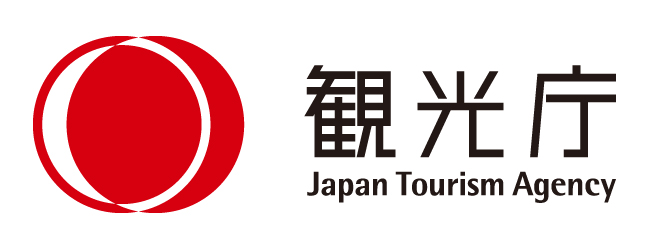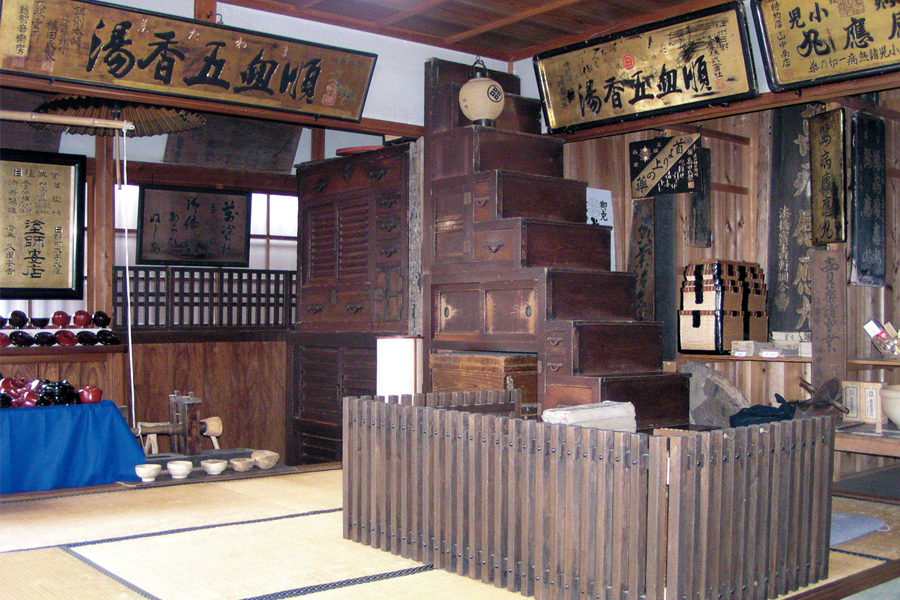

Omi Merchants
Omi merchants were traveling traders from the province of Omi (now Shiga Prefecture) who made a name for themselves throughout Japan between the sixteenth and nineteenth centuries. They established enterprises in cities and towns far from home and built up a strong reputation for their shrewd business sense, hard work, and spirit of fair dealing. They also contributed to the modernization of the Japanese economy during the Meiji era (1868–1912), and many of the businesses they started developed into corporations that are still active today. The wealth they accumulated is reflected in the fine houses that line the streets of historic Omihachiman.
Merchants from different areas of Omi Province traded in goods specific to their area and were active in different regions. Hachiman merchants typically dealt in mosquito nets, tatami surface matting, and hemp cloth products. They were among the first to open stores in Edo (now Tokyo), anticipating that city’s emergence as the de facto capital of Japan in the early 1600s, and they also took part in the development of Ezo (Hokkaido). Some Hachiman merchants traveled as far as Siam (now Thailand) and Annam (Vietnam).
The Omi merchants were firm believers in diligence, thrift, and honest business practices. They developed this code of conduct in part to overcome deep-rooted suspicion of outsiders in general and merchants in particular. In Edo society, merchants were placed at the bottom of the social hierarchy because they did not produce anything tangible.
The Omi merchants adhered to various principles that reflected their philosophy. One was “save and strive” (shimatsu shite kibaru), in other words: long-term business success depends on making the most of what you have and working hard. Another principle was “benefit for all three parties” (sanpo yoshi), meaning that any business deal should be good for the seller, good for the buyer, and good for society at large.
A further principle was expressed in the motto “hidden virtue and good deeds” (intoku zenji). The Omi merchants believed their business should benefit society and that they should share their wealth without seeking praise or publicity for their actions. Their contributions to society therefore took the form of funding for public works such as the construction of schools, roads, and bridges.

この英語解説文は観光庁の地域観光資源の多言語解説整備支援事業で作成しました
This English-language text was createdby the Japan Tourism Agency.

